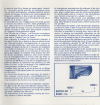Hello all,I have been watching a lot of short piano videos. With almost no exception, they sound so distorted and poor to me. I assume some are recorded using iPhones and such. Others appear to have pro videographers yet the sound is just awful. Are they just doing a poor job or is it this difficult? I mostly hear the distortion from the bass notes. Some examples:
This one seems under water:
Every one of her videos sound bad in a different way!
Another under water:
This one screwed up the image too:
Another one with good image but so bad of a recording:
Professional recordings sound infinitely better no matter which album I listen to. Any ideas?
I've recorded many piano recitals at an audiophile level as well as orchestra and eneamble performances. I use Earthworks omnis (QTC50s) connected to a Sound Devices 788 recorder.
Here's the secret you need to understand: you need to think in terms of recording the room as much as you record the instrument. For a piano recital, I won't promise good results unless the room is good acoustically. When I record an orchestra, it's in a hall desiged for better sound and hopefully it is. I've recorded Beethoven's 9th with full chorale at Arsht Center in Miami by recording the room and making it sound like you are in that room.
For a piano recital, always start with one mic over the strings and then one or more some distance away to get more room than piano. You are recording each mic individually and deciding how much of that to mix in, in post production. It's easy to move mics around to listen for better placement.
I understand that some of those less expensive recorders from Zoom, Tascam etc have decent preamps nowadays but they must supply a full 10 milliamps of phantom power to power an Earthworks omni. Are their sampling clocks good enough? I don't know. Earthwork's less expensive omnis, below the QTC50, are probably sufficient for the audiophile recordings I've done. Even cheaper omnis by other companies will often be preferrable to any directional mics if you aim to record the room and the piano, and the room is decent.
You'll never allow the listener of a recording to feel like they're in the room unless you record the room as well as you record the instrument/s. In my pro opinion, the only mics to use for that are omnis.
Last edited:

